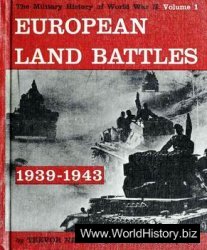Historiography reached its peak of prominence when a few powerful currents combined forces. The philosophes had thrust a comprehensive interpretation of history into the midst of public discussions. At the same time the historians of the German Aufkldmng, somewhat less concerned with charting a common course for humanity, articulated an intricate body of methods designed to make possible accurate knowledge and an “understanding” of past periods. Then the American and French revolutions introduced fundamental and rapid changes into Western culture. As the quest for knowing the meaning of the multitude of often puzzling events grew, people relied on historians to find explanations for the many changes as well as the assurance of continuity and stability in the midst of change. Some historians searched past centuries for the origin, development, and nature of liberty. Others were captivated by the Romantic concept of the nation as the spiritual unity of a people and attempted to trace a nation’s course through the ages. In either case historians often left the quiet of the scholar’s study to become counselors of rulers, guides for political parties, and articulators of the Volksgeist. Even those who remained simply scholars contributed to the enhancement of history’s prominence by their contributions to a historical science. Historians did not quite replace the philosophers and theologians but in many ways they surpassed them in influence, as the educated became used to calling on historiography to interpret human life, or at least to aid in approaching most problems historically.
Historians as public figures. One could have thought that the ancient period had returned, as history writing and public service once more were frequently linked. In France, Thiers and Guizot served King Louis Philippe as minister and prime minister while the famous poet Alphonse M. C. Lamartine planned his History of the Girondists, conceived as history but executed as a novel, to discredit the monarchy of Louis Philippe. He briefly became a prominent figure in the Revolution of 1848. Most other French historians had ties to one or the other of the political groups, and Thiers and Mignet began their careers as journalists in order to influence public opinion. Conversely, historians suffered for their commitment through dismissals from archival and academic positions when the political power-constellation shifted (for example, Mignet and Michelet) and through exile (Quinet and Thiers). Few perservered as well as Thiers, who in old age became the first president of the Third Republic.
Bismarck considered some German historians essential figures in the creation of the German Empire of 1871. Their public commitment, however, differed from that of their French colleagues. In the 1830s, Ranke did edit the Historische Politische Zeitschrift, to pea. d the cause of the unique German Volks-geist and of a moderate conservatism with the educated public, and Gervinus edited a liberal periodical. But such journalistic ventures were rare for German historians, and equally so was Ranke’s role as occasional advisor to two kings, Friedrich Wilhelm of Prussia and Maximilian II of Bavaria. It mattered much that most German historians were professors at public universities. Despite considerable academic freedom, the stake of historians in the existing order and the aspirations of their state made cooperation between the existing powers and historians more characteristic for German historiography than acts of opposition. The outstanding example of the latter occurred in the 1830s when seven piofes-sors, including Dahlmann and Gervinus, protested against the Hanoverian king’s revocation of the constitution. Later, after the publication oi hs History of the Nineteenth Century, Gervinus was tried for treason, while Dahlman, who had joined the unsuccessful Frankfurt Parliament of 1848, hoping for a German liberal and national reconstruction, associated himself with the so-called Prussian school of historiography, which favored a German Empire under Prussian leadership. On behalf of that cause many historians spoke well and effectively.
In England the liaison between history writing and public life had always been firm but had rarely been closer than in Macaulay’s case. He was a fortunate man since his sympathies, mode of work, and experiences all were in harmony with the prevailing Whig political philosophy. “Being in tune’’ with the prevailing spirit of one’s nation was also characteristic of the American historians of the pre-Civil War period, although, with the exception of Bancroft, they had little direct involvement in public life. Macaulay and the narrative American historians were not professors who wrote mainly for a small circle of scholars. They wished for their often many-volumed works to reach the “people” and therefore strove for eloquence and dealt with issues which concerned the public. The “people,” of course, meant the lay public which through public education was growing steadily. Guizot thought that readers or listeners “required light, and life together, [and] they wished to be illumined and excited, instructed, and amusedNotwithstanding the subsequent disapproval by the so-called “scientific” historians of such “literary” history, nineteenth-century historians could not write in any other way if they wished to reach their goals.
Even Ranke, never intent on promoting a cause, strove for a narrative with dramatic highlights, sharp characterization of persons, and a steady flow. lie succeeded as a writer but not as a lecturer. His lecture audiences, except during the 1830s, were small. In that respect he stood in sharp contrast to Heinrich Treitschke, whom the Berlin University faculty picked to succeed Ranke precisely in order to link history and public life more directly or, in other words, “to do justice to those circles of students who seek instruction in history for other purposes than to dedicate themselves exclusively to the study of history and historical research.”*® Treitschke fulfilled this hope, and his work became an enthusiastic affirmation of the German nation and its past from the perspective of its new standing in Europe.
The German historical science. Ranke had already instilled the code of wie es eigentlich gewesen in dozens of young historians when Macaulay still celebrated English liberty in his works and Guizot wrote a work which originated in “the paternal pleasures of telling my grandchildren the history of France.”*** German historiography had rushed ahead of the rest of European historiography in methodological sophistication. Only in the 1860s would the mediation of Gabriel Monod facilitate the transfer of German methods to France, while the German mode of “doing history” influenced the idiosyncratic English development through the so-called Oxford and Cambridge schools of historiography and American historiography through the numerous Americans who studied at German universities. The German historical seminars were the training ground for the missionaries of Geschichtswissenschaft and the German historical works were its missionary tracts.
Yet the view of German historical science as simply the culmination of the critical historiography that began with Renaissance humanism-a sort of saturated erudition—cannot explain the great controversies over that historical science in the late nineteenth century, conflicts which were more philosophical than methodological in nature. The issue was the idealist ingredient in that science which interpreted historical phenomena in terms of God or his mediators, the ideas, and saw the world of persons and institutions as marked by uniqueness and development. Nineteenth-century rulers and governments found such a historical interpretation, with its clear negation of abstract ideals and radical change, congenial. On the other hand the idealist basis made the Rankean historical science vulnerable to attack once another philosophical base was chosen.
Up to the 1880s, a supreme confidence stilled all doubts. History no longer was the servant of any other discipline; it had come into its own, complete with ancillary disciplines and a methodology. The latter revealed both its promise and its limits. The desire to reconstruct accurately and fully all of past life tended to widen the scope of sources continuously, with the new science of epigraphy supplying the prominent example. Niebuhr had pioneered the use of inscriptions in Roman history. Bockh had done the same for Greek inscriptions, while Theodor Mommsen enhanced the knowledge of Roman inscriptions. The demand that every historical work be based on the critical use of documents, a procedure Ranke did not originate but made mandatory, led students into the archives, where they promptly learned much about politics, diplomacy, law, and a few social phenomena. Many of the sources for economic history, intellectual, artistic, and religious history, however, could not be encountered in the state archives and this circumstance combined with the preoccupation of the age with politics in the grand style worked to the detriment of these fields. Also, when the historians emerged from the archives many of them found the apparatus of scholarship and the mind set of the erudite scholars formidable obstacles to achieving eloquence. While gifted historians still succeeded in exciting their readers, pedantry crept into historical works.
One period of the past gained especially from the new scholarship. With archives full of medieval documents and with the age filled with Romantic notions of Volksgeist, German historians began to bring to light the Middle Ages when, as they thought, the German spirit had manifested itself in a brilliant empire. On their part, some French historians searched the Middle Ages for the traces of liberty, the growth of the Third Estate, and the role of kings, while the English retained their strong interest in the classical age and gave intermittent attention to the medieval period. English historians were fascinated by the Anglo-Saxons and the Middle Ages particularly in the context of exploring the seemingly constant struggle between crown and parliament. In all countries a strong desire grew to rescue the remains of the nation’s past by collecting, editing, and publishing source materials (see fig. 17.1). This Romantic-nationalist dedication to the past produced brilliant text editions. Students were trained to judge and use sources in historical seminars and special institutes such as the Ecole des Charles, which Guizot had furthered, and the Oesterreichisches In-stitut fiir Geschichtsforschung. In these circumstances medieval studies flourished, achieving results that have altered our ideas about Western history profoundly.
Amidst the celebration of the successes of the new critical history nobody noticed that historiography had arrived at one of its turning points. The view of historical knowledge as cumulative, with scholars contributing their small share to
Figure 16.1
The Great Source Collections of the Nineteenth Century
German Area
Monumenta Germaniae Historica
Initiator: Baron Karl von Stein in 1819.
Editors: Phase I-G. H. Pertz, 1.
F. Bdhmer, G. Waitz, L. Bethmann, W. Wattenbach, R. Kopke, P. Jaffe. Phase II-G. Waitz, T. Mommsen,
W. Sickel, W. von Giesebrecht,
W. Wattenbach, E. Diimmler.
Range: A. D. 500-1500.
Regesta (of various emperors) from 1831 on: J. F. Bohmer, later J. Ficker (published from remaining documents and his own Acta imperii selecla).
Range: 928-1399.
Fontes Rerum Germanicarum Initiators/editors from 1843 on:
J. F. Bohmer; P. Jaffe
Range: Middle Ages.
France
Continuation of: Gallia Christiana
Initiators: Maurists to 1816, then Institut de France/Academie des inscriptions et des belles lettres.
Editor: B. Hareau (1816-65).
Recueil des historiens des Gaules et de la France
Initiators; Maurists to French Revolution, then Academic des inscriptions et des belles lettres. Editor: Dom Brial.
Collections des documents inedits sur Vhistoire de France
Initiators: F. Guizot (1830s) and Societe de I’histoire de France whose members included A. Thiers, F. Mignet, F. Fauriel, P. de Barante, L. Delisle.
England
Chronicles and Memorials of Great Britain and Ireland during the Middle Ages (=Rolls Series)
Editors: H. Petrie suggested the idea and lobbied for it. Collected Monumenta Historica Britannica (1848) (extracts from pre-1066 sources).
Next publications of administrative records by series of Record and State Papers Commissions beginning in 1838. Public Records Office established 1838 under Master of the Rolls (M. R.).
1857: beginning of Rolls Series Proper
Initiators/editors: T. Hardy, F. Palgrave, J. S. Brewer, J. Stevenson, J. Romilly (M. R.); later, especially, W. Stubbs.
It, excluded historians whose methods had not been “fully developed.” All histories created prior to the early 1800s had become tainted and they all had to be “done over again” in the proper manner. They offered at best source material that could be consulted for bits of information but had to be rejected as valid history. As a consequence, one not perceived by the German historical scholars and their allies, the value and authority of all older historiographical models and all histories based on them began to vanish. Paradoxically, Geschichtswissenschaft had the same corrosive effect on traditional historiography as did the advocacy of the exclusive use of the natural science model for the explanation of human phenomena.
Historical scholarship in a young nation. The enthusiasm for history shown by nineteenth-century Americans equalled that shown by Europeans. The two continents differed considerably, however, in their historiographical endeavors. Americans, too, had their publications of sources but these were not sustained by monarchical or princely subsidies and by a strong contingent of historical scholars drawn from the academic community. Instead the historical societies formed by states, regions, and localities assumed the task of collecting, preserving, and pubhshing source materials. Such a society began in Massachusetts as early as 1791, and by 1860 there existed over one hundred such societies. A few scholarly entrepreneurs also did their share in preserving the documentary heritage of the nation, such as Jared Sparks, who published forty-seven volumes of sources, including the writings of Washington.
Prominent among those who formed and sustained the historical societies were lawyers, clergymen, doctors, teachers, and gentlemen of means. They shared an immense pride in the new nation and its steady development. The nation’s past as well as its future destiny were clear to them: God’s Providence had created the United States as the defender of the ideal of liberty in the ongoing struggle between the forces of liberty and its opponents. The remains of the American past were the witnesses to that struggle and needed to be preserved so that they could teach and inspire future generations. In publishing these sources editors needed therefore to be accurate but also sympathetic. The strict critical editorial standards of contemporary German historiography had no measurable Influence on American editors of documents. Sparks for example, still corrected George Washington’s grammar, spelling, and sentence structure because such editing seemed to do no harm to accuracy and enhanced the didactic and inspirational use of the documents.
From about 1870 on the new standards of critical-text editions and interpretations were taught in graduate programs in history at universities. Up to that time history had had a strong position in high schools but a precarious status on the college level. Since 1643, when Harvard College began to offer a Historia Civis, some occasional teaching of history as a separate subject occurred. In the 1830s, for example, Jared Sparks lectured on the American Revolution at Harvard and in the 1850s history appeared at the University of Michigan. Academic history grew from then on. Thus, throughout most of the nineteenth century, history was not a professional endeavor of academicians, although it had a clear didactic purpose; whether the subject matter was American, ancient, or world history, the historian was to provide information and educate democratic citizens.




 World History
World History









